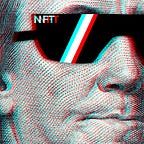Alternative Learning: Code Bootcamps in 2019
As tuition rises in traditional universities, students are seeking other options to fulfill their higher learning requirements without a large financial burden. When it comes to Computer Science, there are hundreds of courses, videos and tutorials released on the internet in the past decade. Sites like Udemy and Coursera have taken online learning to a new level. Some of these websites even offer certificates for the completion of the course, however this is not given the same value as university credit.
A new kind of institution sometimes referred to as a “bootcamp” offers students a cheaper, more efficient way to learn the skills they need to be hired at a specific job. There are plenty of options but coursereport.com has a breakdown of which bootcamps might be the best options for you. One of the coolest things about these bootcamps is that they have flexible tuition payment options. You can pay all of it up front or in payments but many bootcamps allow students to pay when they find a job or charge a certain percentage of their salary. Some also have tuition guarantees that will refund you if you are unable to find a job within a certain time period. Some of these bootcamps are online and some are in person. They will also vary in how much time is required to be committed per week so its on you to figure out which one will fit best for you. I think these types of options are great because not everyone can fit the same schedule.
Personally, I chose to go with the Thinkful Full Stack Flex Program because I liked the format of the learning and the content they teach is aligned with what employers are looking in a full stack developer. In this program I met with my mentor twice a week for a 45 minute video conference where he answered any questions I had and guided me when I was stuck on a particular problem. On top of that there is a Slack channel where I can ask questions and mentors will respond promptly as well as many office hours where instructors that specialize in certain areas will answer questions in a video conference. The curriculum itself was web based and methodical. It covers:
HTML & CSS Fundamentals
Javascript Fundamentals
Development Environment
Interactive Web Apps
Asynchronous Web Apps (jQuery.js)
Server Side Programming (Node.js)
Front End Programming Frameworks (React.js)
Advanced Topics (Data structures & algorithms)
Career Readiness
The content always started with some fundamental knowledge about the topic with some outside references for more details. This was always a great jumping off point but I found that you needed to do more research yourself to get the best understanding of the topic. After the fundamentals you move on to basic drills. After completing the drills you will go on to advanced drills or advanced parts of the topic readings. Lastly there will be a project or capstone that you will need to finish to go on to the next stage. The capstone will encapsulate all the things you learned in that section and allow you to apply it to a real world project that will appeal to employers. I much prefer this method of learning to the traditional method where you are given graded assignments and then study to pass a test. At Thinkful you are graded by an instructor on your capstone projects and then you will be asked to do a mock interview to complete the capstone. This more practical approach gets you direct experience but it glances over a some fundamental concepts. If you want to succeed you will need to look at additional resources that cover these topics in detail.
I look forward to see what kind of results other people see from these bootcamps and how the courses will evolve and adapt to the changing development environment. Universities are not obsolete and definitely have their purpose. As someone who has gone to a big university and has also taken a coding bootcamp I would say that I prefer the relaxed learning environment of a bootcamp but the physical campus also has its pluses. I have not tried an in person bootcamp so I can’t comment on how that is compared to a traditional university but I would expect that it is sort of a hybrid of the two. If you are in a location that has an in-person bootcamp and have the time to commit for it I would say go for it but also don’t underestimate the value of a Bachelor’s Degree.
